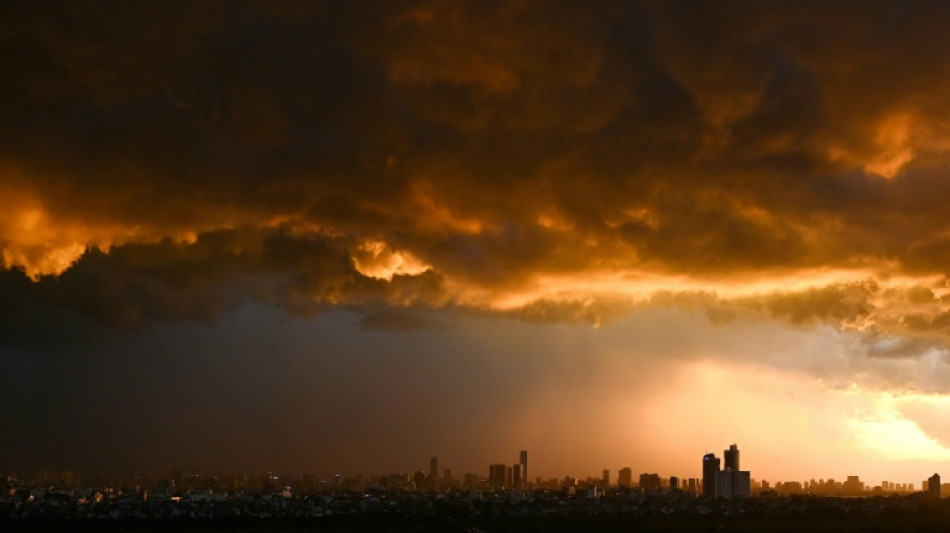
-
 Brazilian 'Superman' cheers child cancer patients in Ghana
Brazilian 'Superman' cheers child cancer patients in Ghana
-
India close in on win over South Africa after Jadeja heroics

-
 Huge explosions rock industrial area near Argentina's capital
Huge explosions rock industrial area near Argentina's capital
-
Bezzecchi takes pole for Valencia sprint and MotoGP

-
 Dominant Shiffrin leads after first slalom run in Levi
Dominant Shiffrin leads after first slalom run in Levi
-
Nine killed in accidental explosion at Indian Kashmir police station

-
 Climate protesters to rally at COP30's halfway mark
Climate protesters to rally at COP30's halfway mark
-
Fighting South Africa lose Rickelton after India 189 all out

-
 Harmer leads South Africa fightback as India 189 all out
Harmer leads South Africa fightback as India 189 all out
-
Prison looms for Brazil's Bolsonaro after court rejects his appeal
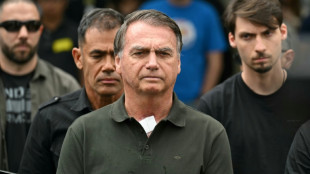
-
 EU bows to pressure on loosening AI, privacy rules
EU bows to pressure on loosening AI, privacy rules
-
India close in on lead despite South African strikes
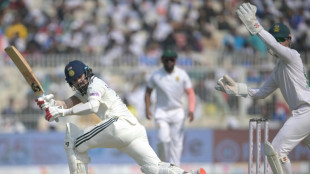
-
 Curry's 49 points propel Warriors in 109-108 win over Spurs
Curry's 49 points propel Warriors in 109-108 win over Spurs
-
NZ boxer Parker denies taking banned substance after failed test

-
 Australia setback as Hazlewood ruled out of 1st Ashes Test
Australia setback as Hazlewood ruled out of 1st Ashes Test
-
Australia pace spearhead Josh Hazlewood ruled out of 1st Ashes Test

-
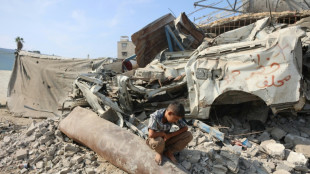 UN Security Council to vote Monday on Trump Gaza plan
UN Security Council to vote Monday on Trump Gaza plan
-
Japan's Tomono leads after men's short program at Skate America

-
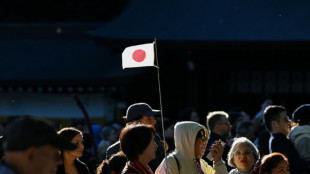 China tells citizens to avoid Japan travel as Taiwan row grows
China tells citizens to avoid Japan travel as Taiwan row grows
-
Purdue Pharma to be dissolved as US judge says to approve bankruptcy

-
 Iran's first woman orchestra conductor inspires
Iran's first woman orchestra conductor inspires
-
Wood gets all-clear in boost for England

-
 Golf's world No. 8 Thomas has back surgery
Golf's world No. 8 Thomas has back surgery
-
Rebooted Harlem museum celebrates rise of Black art

-
 'Desperation in the air': immigrant comics skewer Trump crackdown
'Desperation in the air': immigrant comics skewer Trump crackdown
-
UN regulator says shipping still wants to decarbonize -- despite US threats
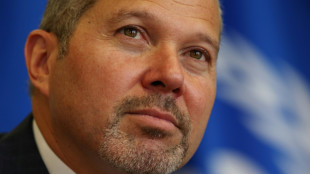
-
 Grant, Kim share halfway lead in LPGA Annika tournament
Grant, Kim share halfway lead in LPGA Annika tournament
-
Musk's Grokipedia leans on 'questionable' sources, study says

-
 Trump signs order to lower tariffs on beef, coffee, other goods
Trump signs order to lower tariffs on beef, coffee, other goods
-
Croatia qualify for 2026 World Cup, Netherlands close, Germany in limbo

-
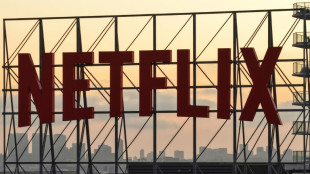 'Last Chance U' coach dies after shooting: US police
'Last Chance U' coach dies after shooting: US police
-
Sinner completes perfect ATP Finals group stage, Auger-Aliassime reaches last four

-
 Woltemade sends Germany past Luxembourg in World Cup qualifier
Woltemade sends Germany past Luxembourg in World Cup qualifier
-
Croatia qualify for 2026 World Cup with 3-1 win over Faroes

-
 Kai Trump makes strides but still misses cut in LPGA debut
Kai Trump makes strides but still misses cut in LPGA debut
-
Return to bad days of hyperinflation looms in Venezuela
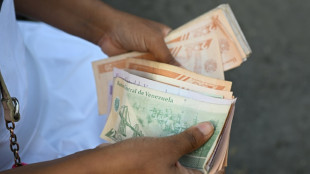
-
 US airspace recovers as budget shutdown ends
US airspace recovers as budget shutdown ends
-
Russia strike on Kyiv apartment block kills six, Ukraine says
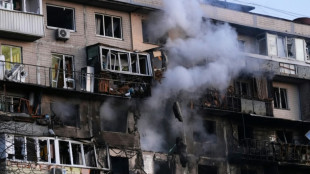
-
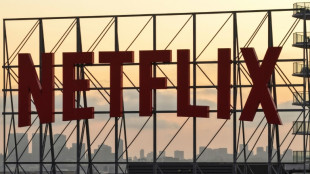 Arrest made in shooting of 'Last Chance U' coach: US police
Arrest made in shooting of 'Last Chance U' coach: US police
-
At COP30, senator warns US 'deliberately losing' clean tech race with China
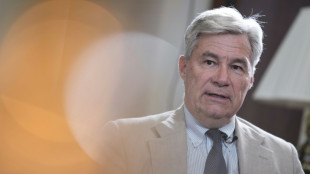
-
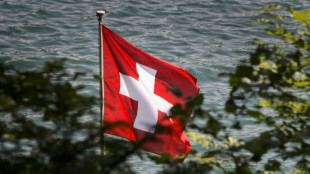 US, Switzerland say deal reached on trade and tariffs
US, Switzerland say deal reached on trade and tariffs
-
Fossil fuel lobbyists out in force at Amazon climate talks: NGOs

-
 Returning Alldritt blames himself for France axing
Returning Alldritt blames himself for France axing
-
Stocks struggle on US rates, tech rally fears

-
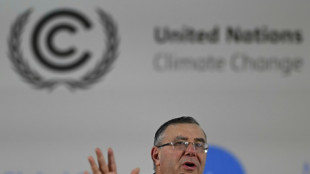 A rare oil CEO shows up at COP30, spars with activists
A rare oil CEO shows up at COP30, spars with activists
-
Trump demands probe into Epstein links to Bill Clinton
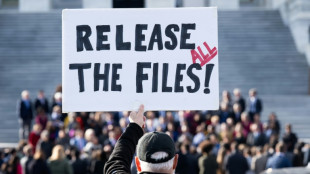
-
 England great Anderson says 'weak' Australia still Ashes favourites
England great Anderson says 'weak' Australia still Ashes favourites
-
Indigenous protesters disrupt UN climate summit again
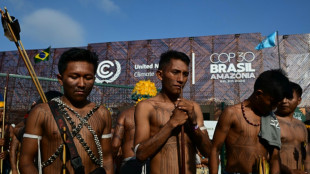
-
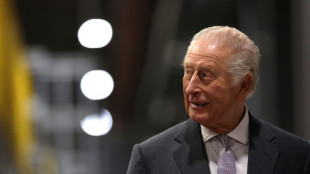 Gun salutes for King Charles III as he marks 77th birthday
Gun salutes for King Charles III as he marks 77th birthday
-
Ford urges England to make their own New Zealand history


More than 60 UN members sign cybercrime treaty opposed by rights groups
Countries signed their first UN treaty targeting cybercrime in Hanoi on Saturday, despite opposition from an unlikely band of tech companies and rights groups warning of expanded state surveillance.
The new global legal framework aims to strengthen international cooperation to fight digital crimes, from child pornography to transnational cyberscams and money laundering.
More than 60 countries were seen to sign the declaration Saturday, which means it will go into force once ratified by those states.
UN Secretary General Antonio Guterres described the signing as an "important milestone", but that it was "only the beginning".
"Every day, sophisticated scams, destroy families, steal migrants and drain billions of dollars from our economy... We need a strong, connected global response," he said at the opening ceremony in Vietnam's capital on Saturday.
The UN Convention against Cybercrime was first proposed by Russian diplomats in 2017, and approved by consensus last year after lengthy negotiations.
Critics say its broad language could lead to abuses of power and enable the cross-border repression of government critics.
"There were multiple concerns raised throughout the negotiation of the treaty around how it actually ends up compelling companies to share data," said Sabhanaz Rashid Diya, founder of the Tech Global Institute think tank.
"It's almost rubber-stamping a very problematic practice that has been used against journalists and in authoritarian countries," she told AFP.
- 'Weak' safeguards -
Vietnam's government said this week that 60 countries were registered for the official signing, without disclosing which ones.
But the list will probably not be limited to Russia, China, and their allies.
"Cybercrime is a real issue across the world," Diya said. "I think everybody's kind of grappling with it."
The far-reaching online scam industry, for example, has ballooned in Southeast Asia in recent years, with thousands of scammers estimated to be involved and victims worldwide conned out of billions of dollars annually.
"Even for the most democratic states, I think they need some degree of access to data that they're not getting under existing mechanisms," Diya told AFP.
Democratic countries might describe the UN convention as a "compromise document", as it contains some human rights provisions, she added.
But these safeguards were slammed as "weak" in a letter signed by more than a dozen rights groups and other organisations.
- Tech sector -
Big technology companies have also raised concerns.
The Cybersecurity Tech Accord delegation to the treaty talks, representing more than 160 firms including Meta, Dell and India's Infosys, will not be present in Hanoi, its head Nick Ashton-Hart said.
Among other objections, those companies previously warned that the convention could criminalise cybersecurity researchers and "allows states to cooperate on almost any criminal act they choose".
Potential overreach by authorities poses "serious risks to corporate IT systems relied upon by billions of people every day", they said during the negotiation process.
In contrast, an existing international accord, the Budapest Convention on Cybercrime, includes guidance on using it in a "rights-respecting" way, Ashton-Hart said.
The location for the signing has also raised eyebrows, given Vietnam's record of crackdowns on dissent.
"Vietnamese authorities typically use laws to censor and silence any online expression of views critical of the country's political leadership," said Deborah Brown of Human Rights Watch.
"Russia has been a driving force behind this treaty and will certainly be pleased once it's signed," she told AFP.
"But a significant amount of cybercrime globally comes from Russia, and it has never needed a treaty to tackle cybercrime from within its borders," Brown added.
"This treaty can't make up Russia's lack of political will in that regard."
Q.Jaber--SF-PST
